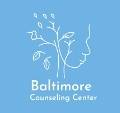Control Your OCD With OCD Baltimore Therapy
- Home
- /
- Blogs
- /
- Mental issues
- /
- Control Your OCD With OCD Baltimore...

Obsessive-compulsive disorder (OCD) is a psychological illness. Recurrent, unwanted thoughts (obsessions) and actions (compulsions) characterize it. The person feels driven to carry out the actions.
OCD is a debilitating and long-lasting disorder. It may have a big effect on someone’s career, relationships, and quality of life. You can use therapy and/or medicine to address it.
I am going to tell three case studies to introduce obsessive-compulsive disorder (OCD) in this article. We’ve then provided a full overview and outlined the symptoms. Finally, we will discuss the causes and treatment of this disorder.
Case Study
[1]
Paul suddenly felt like he had to count the number of cracks in the sidewalk on his way to school. No one told him to count. He did it voluntarily, but it was meaningless. As a result, the road that Paul used to take five minutes to cross now takes three to four hours.
He knows that this task is difficult and meaningless. But he can’t help but do it. Doing the task will at least reduce his anxiety a bit.
[2]
Jane is a little girl. She’s trying to sleep in bed. Suddenly, she has a feeling that the door might not be locked properly. So, she gets up to check the lock and goes back to bed. This doubt keeps coming back to her mind, and she repeatedly runs to check the lock. She does this about 15 to 25 times before she can finally fall asleep.
Jane knows that the door is locked properly. But she wants to check the lock to feel reassured or to have a sense of peace in her mind. And she can’t get rid of this doubt.
[3]
Lisa noticed that there might be germs on her hands. So she went to the basin and washed her hands. She had an unreasonable suspicion that her hands weren’t washed properly. Germs might still be there. So she went to wash her hands again. She kept suspecting germs on her hands. It started to happen again and again. And she couldn’t shake the suspicion. So the hand washing continued, and at one point her hands got wounded.
Lisa knows her hands are washed. But the unreasonable suspicion of germs keeps coming to her mind again and again, and she can’t get rid of it. And this suspicion forces her to wash her hands again and again.
The main characters in those events are Paul, Jane, and Lisa. They have been infected with Obsessive Compulsive Disorder (OCD).
Introduction to OCD.
Obsessive-compulsive disorder (OCD) is a serious mental disorder. It is a combination of obsessions and compulsions. This disease is very debilitating. It reduces all the efficiency of the patient.
In OCD, the patient is bombarded repeatedly with unwanted, intrusive thoughts. They’re uncontrollable and repeated. This mindset is known as an obsession. These thoughts may be linked to depression, fear, anxiety, or disgust. To reduce the anxiety from these thoughts, the person does certain irrational behaviors. They do them over and over. These actions are called compulsions. The behaviors seem illogical. But, the person feels they’re necessary.
These obsessions and compulsions are uncontrollable. Interestingly, the more you try to stop them, the more you hinder or control them. But it does make them stronger.
Symptoms of OCD
We’ve understood the symptoms of OCD from the above case study. We’re highlighting them here.
Obsessions (Uncontrollable thoughts)
- Fear of contamination by germs or dirt.
- Fear of harm to oneself or others.
- Forbidden or intrusive thoughts (usually sexual thoughts).
- There is a need for things to be in perfect order.
- Excessive belief in luck, superstitions, or it’s magical thinking.
Compulsions (Uncontrollable Behaviors)
- Repeated hand washing, arranging objects, or following routines.
- Repeated praying, counting, or repeating words or phrases.
- Avoiding things that might trigger unwanted thoughts.
- Hoarding of items that the person believes they might need in the future.
Other Symptoms of OCD:
- Depression
- Anxiety
- Fatigue
- Difficulty concentrating
- Problems at work or school.
- Social isolation
If you have any of these OCD symptoms, or think a family member does, get help soon. Get help from a qualified mental health professional. OCD Baltimore can be a good option for you. Today, Maryland OCD and Anxiety Therapy is well known. Early intervention can lead to better outcomes. The longer you wait, the disorder gets more complex. It also gets harder to treat.
Who Gets OCD?
OCD can affect people of any age. But, it is most common in young people. Symptoms usually appear before the age of 18.
There are a number of factors that can increase your risk of developing OCD, including:
- Genetics: OCD can run in families. If someone in your family has OCD, you are more likely to develop it as well.
- Brain Structure: People with OCD have differences in certain parts of their brains.
- Others factors: Infections, such as strep throat, or trauma may raise the risk of OCD.
Treatment of OCD
For the treatment of OCD, generally, the following approaches are used:
- Psychotherapy:
Cognitive Behavior Therapy CBT: This is considered the most effective therapy for OCD. CBT therapy helps you find and challenge your uncontrolled thoughts (obsessions). It teaches you better ways to resist your compulsive behaviors.
CBT believes that our thoughts, emotions, physical responses, and behaviors are all interconnected. If we have distorted thoughts, everything related to it will show a negative response. On the other hand, positive thoughts bring peace to our mind and body.
In the case of OCD, we have distorted thoughts. So CBT makes us aware of the link between thoughts, emotions, and behaviors.
Understanding this link helps us learn to manage our thoughts and emotions. This can promote our well-being.
Exposure and Response Prevention (ERP): In this therapy, you are slowly exposed to the things that trigger your obsessions. You are also taught to stop your compulsive behaviors. Over time, your fear of the triggers will decrease. The need for compulsive actions will decrease too.
- Medication:
Antidepressants: Doctors may prescribe certain medications to reduce the symptoms of OCD. These may not be the main treatment. But, they can be effective with CBT therapy.
- Other Treatments:
Group therapy: It is helpful. In it, you share experiences and get support from others with OCD.
Lifestyle Changes: Adequate sleep, regular exercise, and a healthy diet can help manage OCD symptoms.
Remember, OCD is a treatable condition. With proper treatment, most people can manage their symptoms and lead a normal life. OCD Baltimore might be a good option for OCD treatment Maryland.
Why OCD occur?
Understanding why OCD occurs is quite complex. However, scientists believe it comes from a mix of genes, biology, and the environment. Below is a brief description of these factors:
Genetic Factors:
- If someone in the family has OCD. The chance of other members getting OCD goes up.
- Research has shown that specific genes increase the risk of OCD.
Biological Factors:
- Abnormalities in specific parts of the brain are thought to be associated with OCD.
- Imbalances in neurotransmitters can also cause OCD. Neurotransmitters are chemical messengers in the brain.
Environmental Factors:
- Childhood trauma, like abuse or neglect, can raise the risk of OCD.
- Some infections, like strep throat, can trigger OCD symptoms in some cases.
These factors can combine to cause OCD. But, the reasons may differ in each case, and we often cannot identify a specific cause.
Summary
OCD is a severe mental illness. It makes our lives and families unbearable and insecure. Not only that, it can also destroy our lives and families.
But, CBT shows us a beacon of hope. We can protect ourselves and our families from OCD. We can do this by taking CBT therapy with a qualified therapist.
We can find Cognitive Behavioral Therapy Maryland. So, let’s change our thoughts with Cognitive Behavior Therapy CBT Baltimore.
